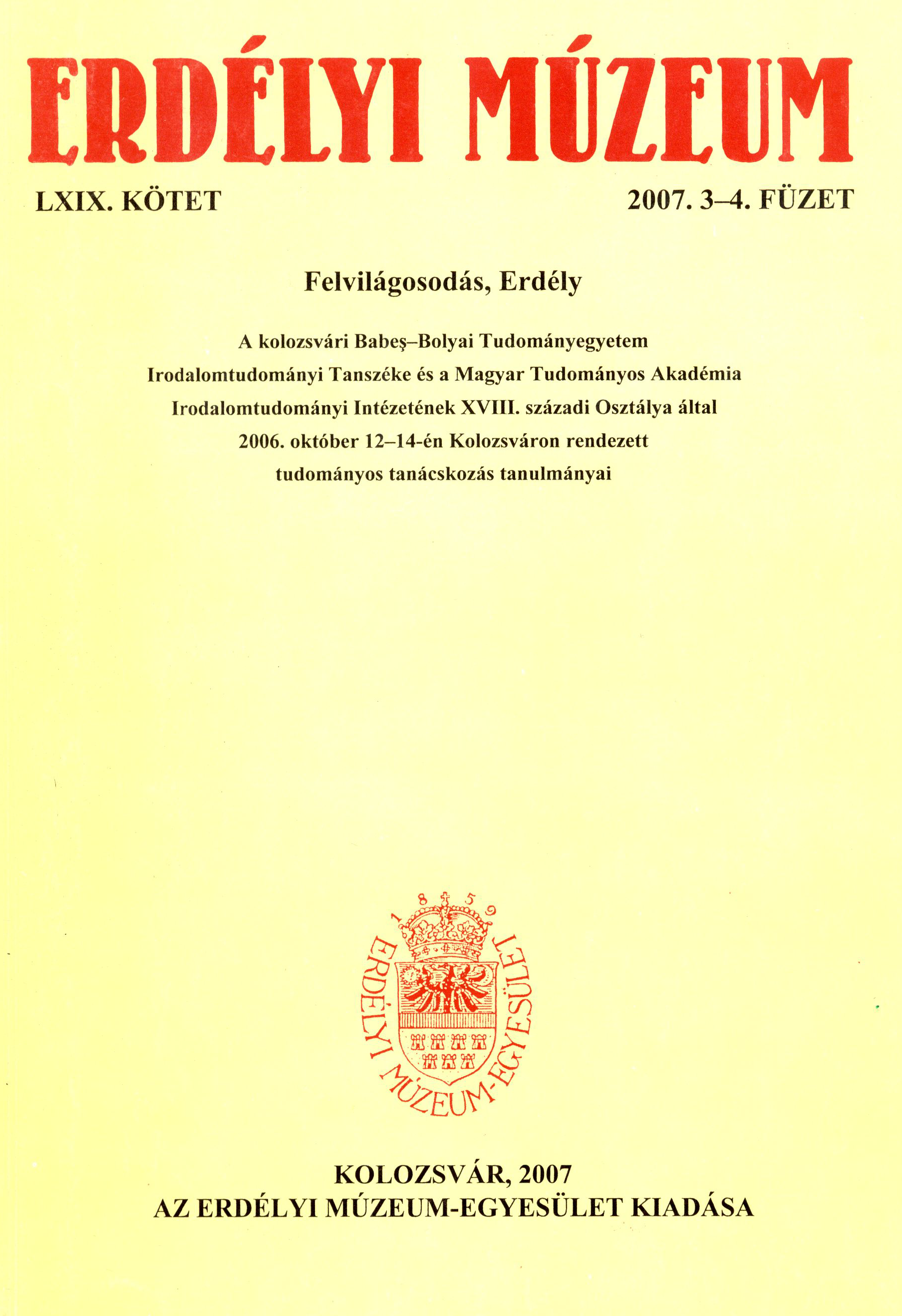Az olvasó pásztor
The Reading Shepherd
The Book as a Medium in the Popular Education of the Enlightenment
Author(s): Gergely LabádiSubject(s): Hungarian Literature
Published by: Erdélyi Múzeum-Egyesület
Keywords: Hungarian Enlightment; popular education; 18th century; books for shepherds; oral culture; Christian traditions
Summary/Abstract: The paper focuses on those Hungarian texts of Enlightenment popular education from the late 18th century, which were written for shepherds. It was due to the concurrence of different factors that shepherds came into the limelight at the end of the 18th century, but the way they were seen was far from uniform. Some saw them through the world of the Bible as the examples of an ideal Christian conduct of life, while those Enlightenment reformers, who emphasized social usefulness, regarded them as no more than idlers. According to both camps, however, books and their training for reading could make them better. But we have to take into account at least one more shepherd image, which did not see them as „children” to be nurtured but rather, with their peculiar backwardness and oral culture, as the possessors of true knowledge. Through examples, the paper analyzes the issues raised by these books written for shepherds: the medial turn of knowledge transfer; the narrative, thematic and metaphorical resolutions for the medial paradox; and the problem of the preservation of Christian and national traditions.
Journal: Erdélyi Múzeum
- Issue Year: LXIX/2007
- Issue No: 3-4
- Page Range: 61-76
- Page Count: 16
- Language: Hungarian

